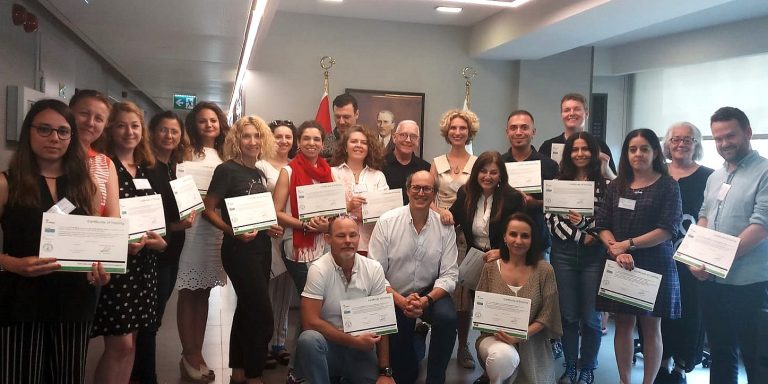Debating Skills
Democracy and Citizenship in Europe
Promoting debating skills
Debating may be easy to learn. Yet, it is challenging to master (Shuster & Meany, 2015, IX).
Training can support the confidence of educators to use debate in classrooms or schools, to identify and adapt resources, and unlock debating benefits for upper secondary students, democracy, and citizenship.

When you get, give, and when you learn teach.
Maya Angelou
Basic Training for Teachers: Student Debate
It is a practical and certified introduction to debating in school free of charge.
Through active and collaborative methodologies, the aim is to promote tools that may reinforce educators' mobilisation to begin or improve debating with upper secondary students.
It is a 6 hours training course with two sessions (online version) or an one-day session (face-to-face version).
Training is scheduled with the national partners.


09 Countries
16 Editions
101 Schools
178 Educators

What teachers say
The training was really effective and to the point, especially the mock debate sessions, which offered info and practice to " newbies" as well. Teacher, Greece
Introducing the practice of debating into the school and establishing a structure that can grow. Teacher, Denmark
Motivation definitively increased! Teacher, Denmark
It allowed me to feel more confident in running a formal student debate club. It also encouraged me to incorporate it more into the curriculum. Teacher, Türkiye
Student Debate Rulebook
Options for upper-secondary students debate
This rulebook suggests a straightforward approach to student debate in the classroom and school. The options are pedagogically oriented for upper-secondary education allowing students to start debating and giving their best.
The rulebook was tested in different schools, countries, and an international debate event with 12 teams from 11 countries.
The worst thing is to rush into action before the consequences have been properly debated. Pericles
We need your consent to load the translations
We use a third-party service to translate the website content that may collect data about your activity. Please review the details and accept the service to view the translations.


